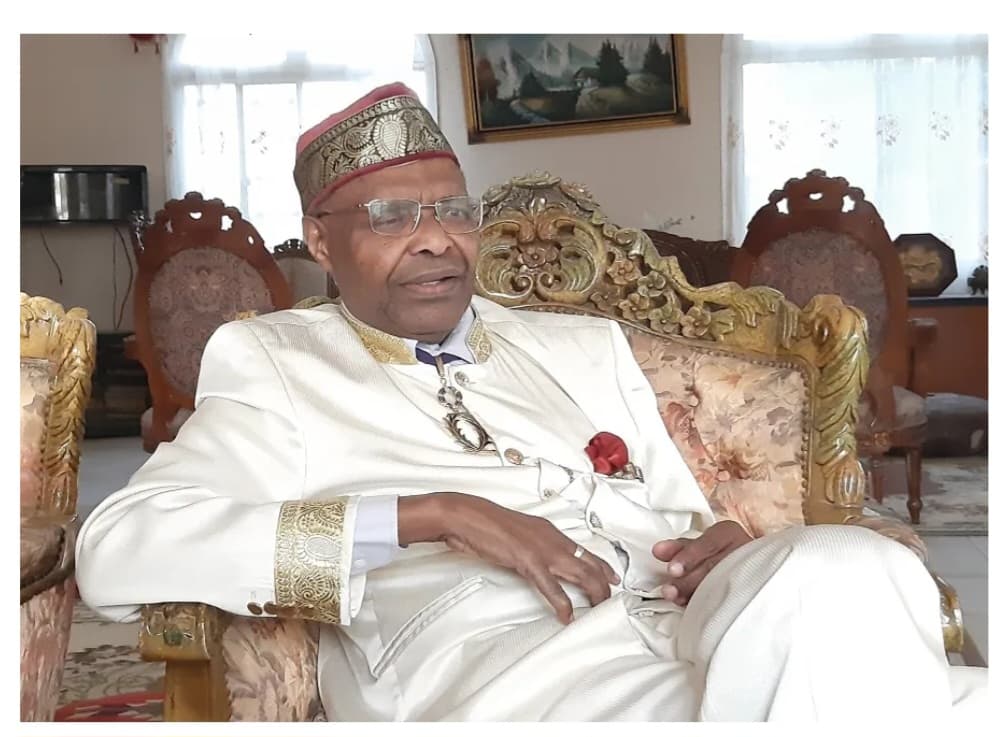By: Haddy Touray
International consultant Dr. Ousman Gajigo has said that the trade minister’s response to the National Assembly about the astronomical rise in levy on bagged cement showed a cavalier attitude to truth.
The Minister of Trade, Industry and Regional Integration, Baboucarr Ousmaila Joof, recently made an appearance at the National Assembly, where he answered questions about the government’s decision to impose a hefty tax on small-scale Gambian importers of bagged cement from Senegal.
“Minister Joof might as well declare himself to be the Minister of Misinformation because his responses to National Assembly members showed a cavalier attitude to truth,” opined Dr. Gajigo in an opinion piece sent to this paper.
“In his response to Honorable Jammeh, Minister Joof stated that the tax is needed to protect a local industry. This is blatantly false. Imposition of a tax on imported cement is justifiable for that purpose in principle if the country had domestic cement manufacturing to begin with. But as everyone should know by now, we do not have cement manufacturing in The Gambia,” he clarified.
“Every cement consumed in the country is manufactured outside and imported. This is information that a Minister of Industry and Trade should know about his country. Either Minister Joofknew this and he was deliberately misinforming the National Assembly or that he is ignorant about it and therefore inadvertently revealing his lack of qualification for his ministerial position,” added Dr. Gajigo.
According to him, the reality is that the government is imposing a tax on bagged cement for political reasons rather than being motivated by any industrial development goals.
“Why is the government imposing tax on bagged cement but not bulk cement? The reason is simple. The government is protecting one politically-connected importer of cement, which is Jah Oil. Neither Jah Oil nor any other company engages in cement manufacturing in the Gambia. So how does this reality square with Minister Joof’s claim that the excise tax is designed to protect a local industry?” Dr. Gajigo contended. He continued: “Beyond this specific point, Minister Joof’s responses were highly notable for their general incoherence. For instance, he even linked this cement issue with the general issue of the country’s trade deficit as if to imply that its imposition was needed to reduce the deficit. Cement would have to be imported from either Senegal or another country. Indeed, the bulk cement that Jah Oil brings sometimes comes from outside of the continent. The reality is that one cannot address the country’s trade deficit with any policy instrument on cement because local manufacturing of the product is impossible due to the absence of large-scale deposits of limestone. Even if a company imports clinker, it would still need to import gypsum in order to produce cement. So, linking this issue with trade deficit shows that Mr. Joof was either clueless or trying to sidetrack the issue.”
He pointed out that to address the country’s trade deficit by restricting the importation of some goods, the government would need to focus on items that the country has the capacity to produce locally and to improve business enabling environment in the country so as to encourage their production.
“Such goods are not difficult to identify. For instance, one of our largest imports is rice, which is something we can produce locally to reduce our trade deficit if the government were serious and capable.
“Other items such as vegetable oil and numerous other imported food products can also be produced locally if the government is serious about industrial development by addressing important constraints such as reliable and affordable energy. After all, The Gambia’s energy cost is unbearably high and its supply is unreliable and therefore a major impediment to local manufacturers and foreign investors.”
According to Dr. Gajigo, when NAM Jammeh asked about plans by the government to support local businesses affected by “this unfair” tax on bagged cement, Minister Joof indicated that the government was planning to link them up with “local producers”.
“This is clearly false and it exposes the government’s ultimate goal, which has nothing to do with helping those businesses or Gambian consumers. First, the response falsely implies that there are local producers of cement when in reality,there is no local producer of cement. Secondly, it exposes the government’s real plan which is to remove small-scale businesses from cement importation so that there would be no competitors to Jah Oil,” he concluded.





